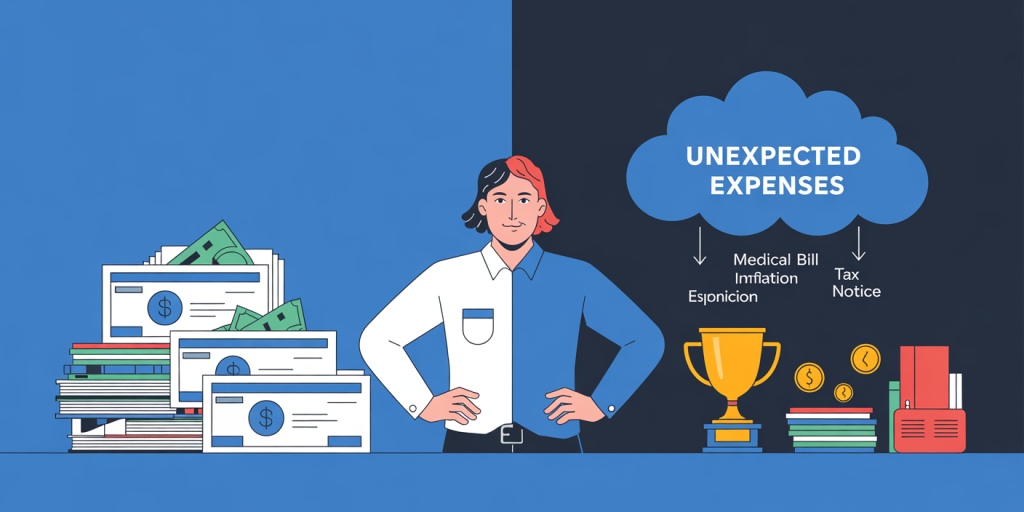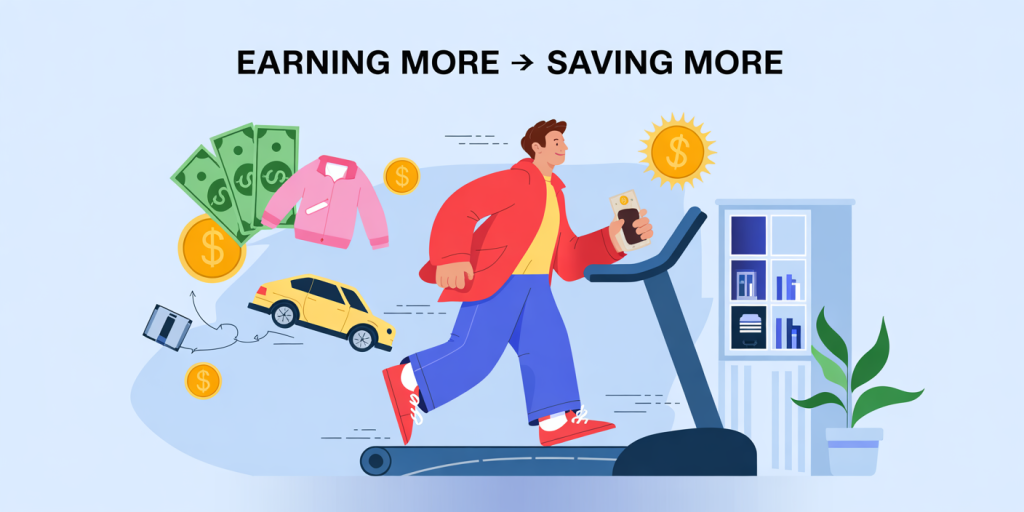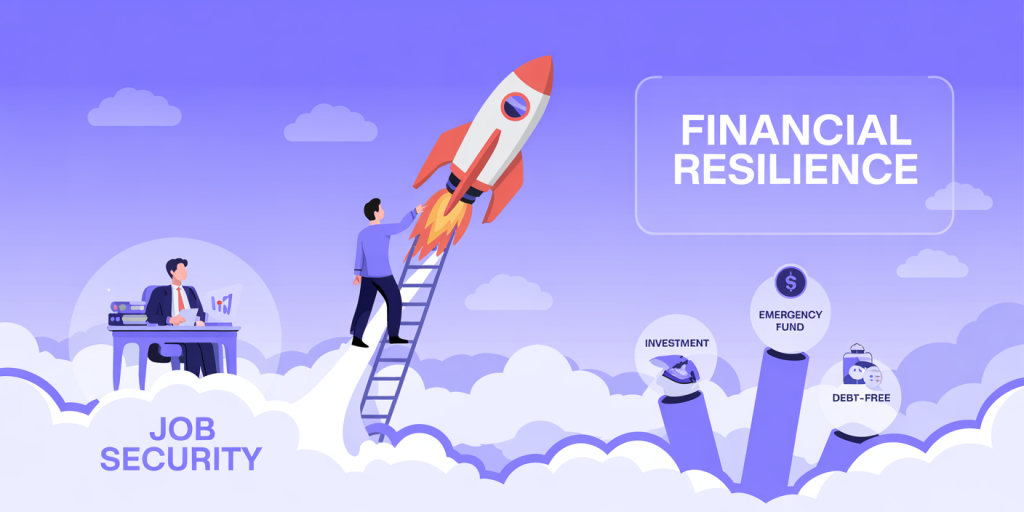Your Job Is Safe… But Is Your Wallet Ready for a Shake-Up?
Anúncios
Stability Isn’t the Same as Security
You’ve built a solid career. Your job is secure, your paycheck shows up on time, and you haven’t been touched by the layoffs plaguing your industry. You’ve got benefits, a reasonable commute, and maybe even the occasional performance bonus. It feels like you’re in a great place financially.

But here’s the uncomfortable truth: a safe job does not equal financial security.
Anúncios
In fact, this illusion of stability can lull you into a false sense of readiness. You may assume that since your income is steady, everything else is fine—but financial shake-ups don’t just happen to the unemployed. A medical emergency, a sudden rent hike, inflation, a surprise tax bill, or a family crisis can rattle even the most predictable paychecks.
So let’s dig deeper. Your job may be safe—but is your wallet prepared for volatility?
Anúncios
1. Why Income Stability Can Be Financially Dangerous
It sounds counterintuitive: how can a stable income be dangerous? The problem isn’t the paycheck—it’s how people manage around it.
Many employees fall into a pattern known as “income-based lifestyle capping.” That means their expenses rise to match their income, leaving them little breathing room. This is how lifestyle creep becomes an invisible chain.
Here’s a scenario:
-
You earn $5,000 a month after taxes.
-
You spend $4,900 monthly—rent, car payments, groceries, streaming services, gym membership, dining out.
-
You save $100, when you remember to.
Then suddenly—your rent increases by $400. Or your car breaks down. Or your health insurance deductible jumps after a provider switch.
What happens next?
You reach for your credit card. You borrow from your emergency fund. You panic.
Build Financial Flexibility, Not Just Routine
Here’s what you should do even if your income is stable:
-
Budget based on 70–80% of your income, not 100%
-
Keep at least one month’s income in a buffer account
-
Avoid fixed commitments (like car leases or subscriptions) that leave no wiggle room
-
Use bonuses or raises to build savings, not increase lifestyle expenses
The best time to build flexibility is when things feel calm.
2. Your Emergency Fund Might Not Survive a Real Emergency
You’ve probably heard that everyone should have an emergency fund—but few people actually follow through. Even those who do often stop too early.
Emergency Fund Benchmarks
-
Minimum: 3 months of essential expenses
-
Recommended for most: 6 months
-
If you’re self-employed or in an unstable industry: 9–12 months
Let’s do the math:
If your essential monthly expenses (rent, groceries, utilities, insurance, transportation) are $3,000, you should ideally have $9,000 to $18,000 in a liquid, easily accessible savings account.
But most people have far less—if anything.
Where to Keep It
-
High-yield savings account (HYSA), not checking
-
Keep it separate from your spending account to avoid dipping into it
-
Don’t invest it—emergencies don’t wait for the market to recover
A true emergency fund doesn’t just help you avoid debt—it protects your dignity, your time, and your peace of mind.
3. Lifestyle Inflation Is Sabotaging Your Future Wealth

Here’s the dangerous irony: the more secure people feel in their jobs, the more likely they are to overspend.
This leads to lifestyle inflation, which happens when increases in income are matched (or exceeded) by increases in spending. You upgrade your apartment, buy a new car, take more vacations, subscribe to more services—and suddenly your monthly outflow rises faster than your paycheck.
Why This Is Risky
-
It delays or prevents wealth accumulation
-
It makes you more dependent on your current job and income
-
It reduces your ability to handle surprises
-
It creates financial stress if your lifestyle becomes unsustainable
How to Defend Against Lifestyle Creep
-
Every time you get a raise, automate 50–70% of it to savings or investments
-
Delay major upgrades (home, car, tech) by 3–6 months and reassess
-
Conduct a quarterly “subscription audit” to remove wasteful expenses
-
Tie spending decisions to values, not emotions
You can enjoy the rewards of your success—just don’t let them become obligations that trap you.
4. Inflation and the Economy Will Keep Changing—Is Your Plan Built for That?
Even if your job is bulletproof, your dollar’s purchasing power isn’t.
Inflation—whether steady or sharp—erodes your ability to buy the same goods and services with the same income. And it’s not just about prices going up—it’s also about wages not keeping pace.
From 2021 to 2024, U.S. inflation rates jumped to levels not seen in over 40 years. While some wages increased, the cost of groceries, rent, and services outpaced most people’s income gains.
Common Examples of “Invisible Loss”
-
Grocery costs rising 20–30% over 2 years
-
Insurance premiums increasing annually
-
Utility bills becoming more volatile
-
Interest rate hikes increasing debt servicing costs
How to Build an Inflation-Proof Wallet
-
Invest in diversified assets like index funds, real estate, I-bonds, or TIPS
-
Increase your earning potential with new skills, certifications, or side hustles
-
Use tax-advantaged accounts (Roth IRA, HSA, 401(k))
-
Periodically renegotiate fixed expenses (internet, insurance, subscriptions)
5. You’re One Life Event Away From a Financial Detour
No matter how safe your job is, life happens. Marriage. Children. Divorce. Illness. Aging parents. Career changes. Moving to a new city. Natural disasters.
Financial preparedness isn’t just about numbers—it’s about readiness.
Ask yourself:
-
Could I take a month off unpaid and be okay?
-
If I lost 25% of my income tomorrow, what would I cut first?
-
If I had to move across the country, how fast could I access cash?
If you don’t like the answers, use your current stability to fix them before life forces you to.
Conclusion: Use Job Stability as a Launchpad—Not a Crutch

Let’s be clear: job security is a privilege. It creates breathing room. It allows you to plan. But it is not the endgame.
The real goal is financial independence—a state where your wallet doesn’t panic if your employer makes a sudden shift, if the economy turns, or if life throws something unexpected your way.
Here’s your checklist to move from paycheck-reliant to financially resilient:
✅ Build and maintain a true emergency fund
✅ Spend less than you earn, regardless of income size
✅ Invest regularly in assets that outpace inflation
✅ Automate smart habits (savings, debt payoff, investing)
✅ Limit lifestyle inflation and keep flexibility in your budget
✅ Make career development part of your financial plan
Because yes—your job might be safe. But the economy isn’t. Life isn’t. Costs aren’t. You don’t need paranoia—just preparation.
So build that safety net. Invest with intention. Strengthen your savings muscle.
When the next shake-up hits, you won’t just survive—you’ll stay standing.
Post Comment